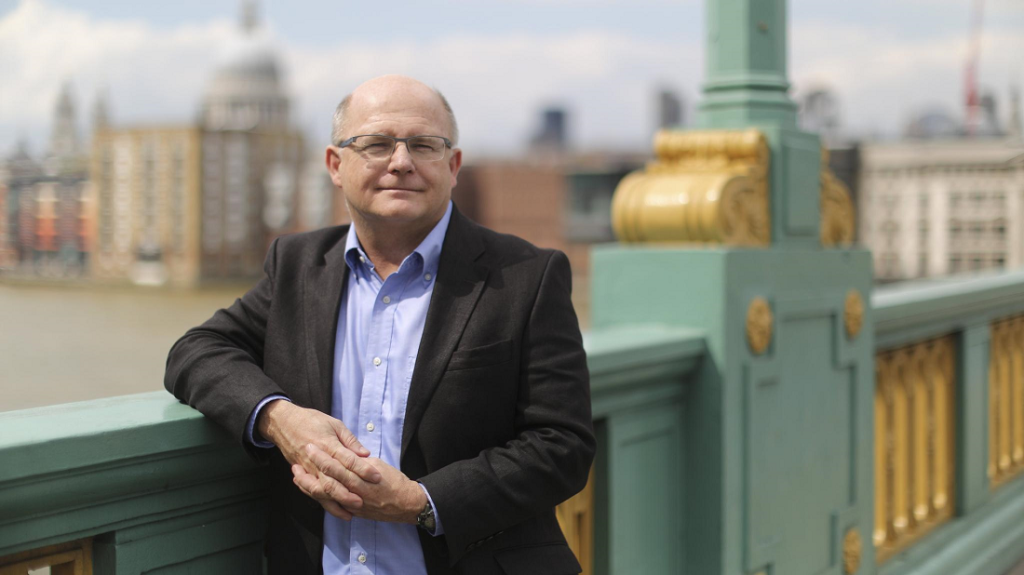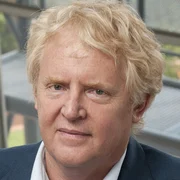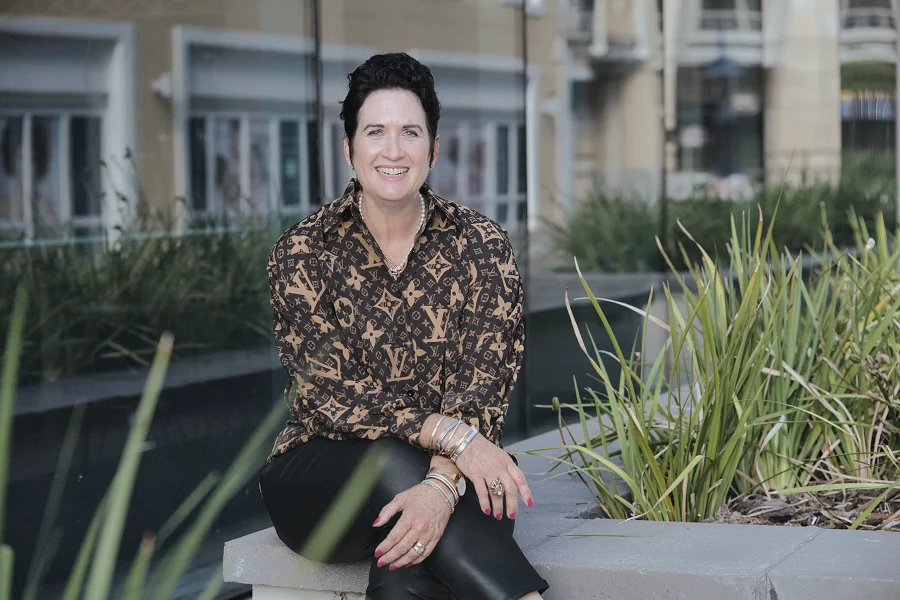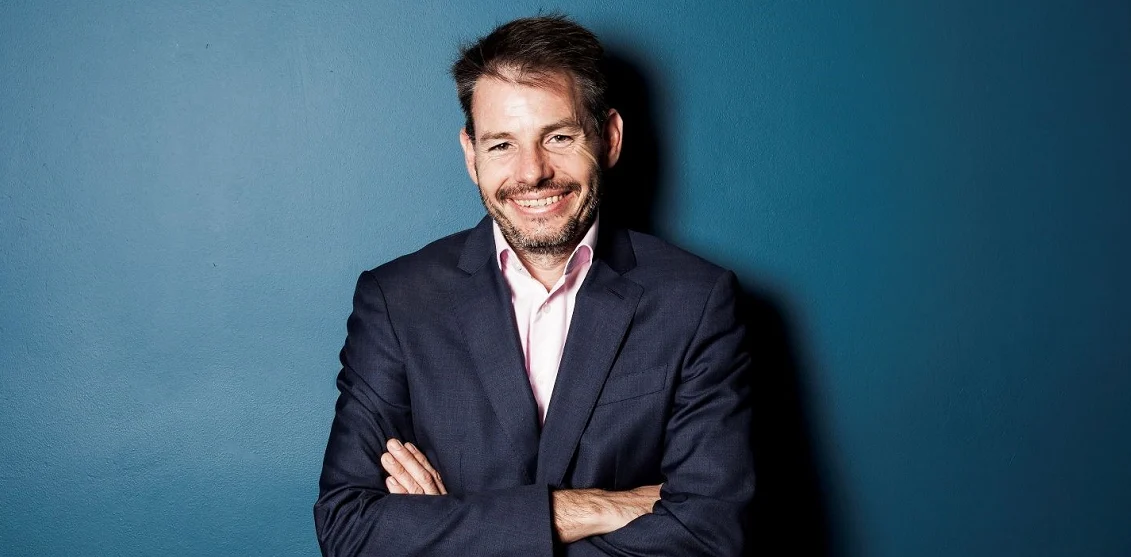
Professor Nick Binedell is the founding director and professor at the Gordon Institute of Business Science (GIBS), University of Pretoria. With a PhD from the University of Washington, an MBA from the University of Cape Town, and a Bachelor of Commerce from Rhodes University, he has dedicated over 30 years to business education and leadership development. As the founding dean of GIBS, he positioned the school as Africa’s premier executive education provider, ranked among the world’s top business schools.
His expertise spans leadership in emerging markets, strategic management, and organizational competitiveness. A frequent keynote speaker, Binedell has worked across continents including Africa, Europe, Asia, and the Americas, sharing insights on leadership, global business challenges, and the execution of effective strategy. He has served on global boards such as the Association of MBAs and led associations like the African Association of Business Schools, shaping management education across the continent.
Professor Nick Binedell is the founding director and current professor of the University of Pretoria’s Gordon Institute of Business Science (GIBS) and a leadership speaker.
He holds a PhD from the University of Washington in Seattle, where he was a Boeing Scholar, an MBA from the University of Cape Town and a Bachelor of Commerce degree from Rhodes University.
After an initial career in the mining and manufacturing sectors, including a period as a general manager, Nick has invested the last 30 years of his career in business education.
In 1998 Professor Nick Binedell was invited to establish a new business school focused on meeting the individual and corporate needs of business in South Africa. GIBS has rapidly established itself as a leading business school in South Africa with a strong focus on partnering with leading South African corporates and providing a high level of local and international business education.
It is ranked as one of the top 40 global executive education providers by the UK Financial Times, while the GIBS MBA is ranked among the top 100 business schools globally in the prestigious Financial Times Executive MBA Rankings 2011 – the only business school in Africa to appear in these rankings.
His extensive experience in the field of management education includes being the founding director of GIBS where he is currently dean and the Sasol Chair of Strategic Management.
Nick is a board member of the International Management Board of The Association of MBAs (AMBA), which is one of the three leading global accreditation bodies. He also serves on the Academic Advisory Board for the same body.
He was the founding president and a past president of the African Association of Business Schools (AABS) where he served two terms. He also served two terms as the chairman of the South African Association of Business schools (SABSA).
Professor Nick Binedell area of interest in business concerns strategic leadership. He has a deep appreciation of the challenges facing executives in complex organisations and has a high level of interest in the competitive dynamics of companies and the challenging search for excellence.
Prof Nick Binedell is particularly interested in the link between strategy, leadership and execution.
He is a frequent public speaker regularly addressing executive teams and conferences on the area of competitive strategy, on global dynamics and their impact on competitiveness, on South Africa’s business challenges and the leadership skills, energy and capabilities required to manage in a challenging, exciting and fast changing country.
A determined traveller and explorer, his earlier roots included extensive travel and by the time Professor Nick Binedell was ten he had lived in Zimbabwe, Germany, Yemen, Kenya, South Africa and Britain.
Nick has spent five years in the US and in the past three years has travelled to and worked in Shanghai, Dubai, Lagos, Delhi, Rio de Janeiro and Ho Chi Minh City as well as European and American cities.
Professor Nick Binedell has a deep appreciation of the challenges facing executives in complex organisations. He retains a recognition of the effort, energy, insight and skill required to run an effective and focused business.
Contact us at Speakers Inc and subscribe to our YouTube channel
Professor Nick Binedell explores the meaning and practice of strategy, tracing its origins from military roots to its role in modern business. Strategy, he explains, has two dimensions: the art of leadership (Strategos, the general’s role) and the content of strategy—the disruptive, market-shaping ideas that define competitive advantage.
In a world of rapid change, South African companies face the dual challenge of adapting locally while competing globally. Strategy, therefore, must answer: “What will we do next?” He emphasizes that strong strategy integrates market awareness, competitor positioning, and organizational capabilities. His litmus test for good strategy is: “What can this business do that the world wants, that competitors cannot?”
Binedell outlines three types of strategy:
He illustrates disruption with examples from Kodak to Instagram, Google, and the smartphone’s replacement of countless physical products. The lesson: disruption accelerates, and leaders must disrupt their own logic before markets disrupt them.
Strategy is not static but an ongoing discipline of insight, foresight, and adaptation. Leaders must balance managerial roles, leadership influence, and entrepreneurial innovation. He stresses the importance of purpose, clarity, and differentiation, urging organizations to stay externally focused on adding value rather than internally locked in routines.
Ultimately, strategy is about vision stronger than memory, asking relentlessly: “What will we do next, and how will it be different?”
00:00 – Introduction: What is strategy? Military origins.
01:15 – Two dimensions: leadership (art of the general) and content (creative ideas).
02:40 – Why strategy matters in a fast-changing South African and global context.
04:00 – The central question: “What will we do next?”
05:15 – The test: what can we do that the world wants and competitors can’t?
06:40 – Three approaches: non-active, reactive, proactive.
08:30 – Examples of disruption: Kodak, Google, smartphones.
10:00 – Strategy as discipline; vision stronger than memory.
11:00 – Conclusion: strategy is about adding value by deciding what’s next.
Professor Nick Binedell shares key insights from co-chairing the second Inclusive Growth Conference in the Drakensberg, hosted by the Halima Moosa Foundation. The gathering brought together 250 leaders from civil society, business, unions, government, and several ministers to discuss the state of South Africa and, most critically, the performance of local government.
Binedell highlights that local government is where “the rubber hits the road,” echoing Tip O’Neill’s observation that all politics is local. The provision of basic services remains central to citizens’ daily experience, making dysfunctional municipalities a pressing issue.
A notable dimension of the conference was the participation of the Chinese ambassador and his delegation, who presented China’s development model, including lifting 400 million people out of poverty within three decades. While impressive, his emphasis on surveillance technologies, such as facial recognition for law enforcement, sparked debate. Delegates questioned whether such practices align with South Africa’s democratic values, with one speaker humorously suggesting the risks of wearing a “Viva Hong Kong” t-shirt in Tiananmen Square.
The conference also addressed South Africa’s economic realities, including the reliance of 20 million citizens on social grants and the risk of generational exclusion from economic participation. Despite sobering statistics, Binedell emphasizes the value of dialogue, collaboration, and cross-sector partnerships as essential to moving the country forward. He concludes that constructive engagement and shared accountability are critical to building an inclusive and sustainable future.
00:00 – Introduction: Overview of Inclusive Growth Conference in Drakensberg.
00:40 – Local government dysfunction and service delivery challenges.
01:20 – Chinese ambassador’s presentation: poverty reduction, surveillance, and debate on democracy.
02:20 – South Africa’s economic realities: 20 million reliant on social grants.
03:00 – Importance of dialogue, partnerships, and collective responsibility.
03:34 – Closing: hope for future conferences and collaboration.
Professor Nick Binedell begins by situating South Africa’s recent political turbulence within the context of a young democracy. He notes that after years of under-reacting, civil society, business, activists, courts, media, and Parliament have stepped up, strengthening constitutional democracy. This, he stresses, is a vital part of the nation’s infrastructure often overlooked by business leaders preoccupied with trading and operations.
Turning to the economy, he highlights transformation as a central theme. At both the individual and business level, transformation must be intentional and purposeful. On a sectoral scale, industries such as mining, agriculture, and manufacturing must be modernized, made inclusive, and properly capitalized to sustain long-term growth.
Binedell warns of fiscal constraints following years of state mismanagement, which damaged creditworthiness and left South Africa in recovery mode. Higher taxes will be required, yet he remains cautiously optimistic. Institutions remain resilient, and with the right leadership team, there is potential for renewal. He emphasizes the unique opportunity for the current president, whose experience spans student activism, union building, business, and government to unify the nation.
Looking ahead, Binedell underscores that while immediate fiscal measures can stabilize the economy, long-term success depends on addressing unemployment, poverty, and especially education. He calls education the “hidden disease” of South Africa, equating its neglect to a cancer undermining future prosperity. In a services-driven, knowledge-based economy, education and skills development are non-negotiable foundations for inclusive growth.
He concludes with optimism tempered by realism: South Africa must deepen democracy, embrace transformation, and invest in skills to build an economy that supports both growth and equity.
00:00 – Introduction: South Africa’s political turbulence and democratic resilience.
01:05 – Transformation at personal, business, and sector levels.
02:10 – Fiscal challenges, debt, and recovery from mismanagement.
03:00 – Leadership opportunity and importance of the “right team.”
03:40 – Economic growth as democracy’s oxygen; education as the long-term challenge.
04:30 – Closing: building skills and inclusivity for a modern economy.
No reviews available for this post.
Speaker fees can vary depending on factors such as expertise, demand, and event specifics. While some speakers may charge a flat fee for their services, others may have hourly rates. It’s best to discuss fee structures directly with the speaker or their representative to understand the pricing model.
Virtual speaking appearances can indeed offer cost savings compared to in-person events. Virtual speaking rates are often 10-50% cheaper than in-person rates due to factors such as reduced travel expenses and logistics. This makes virtual events a cost-effective alternative for organizations looking to book speakers within a budget.
Keynote speeches typically range from 30 to 90 minutes, with the duration determined by the speaker’s expertise, the event’s agenda, and audience preferences. Keynote speeches often include a combination of inspirational stories, practical insights, and actionable advice tailored to the event’s theme or objectives.
The scale of the event and audience size can indeed impact a speaker’s fee. Larger events with a broader reach or higher attendance may command higher fees due to increased exposure and demand. Conversely, smaller events or niche audiences may offer opportunities for more flexible pricing arrangements.
Travel expenses such as transportation, accommodation, and meals are typically negotiated separately from the speaker’s fee. These costs vary depending on the speaker’s location, travel distance, and event duration. It’s important to clarify travel arrangements and expenses during the booking process to avoid misunderstandings.
Many speakers require a deposit to secure a booking, with the remaining balance due closer to the event date. Deposits are often non-refundable and serve as a commitment from both parties. It’s advisable to discuss deposit requirements and payment terms with the speaker or their representative when finalizing the booking.
Ready to find the perfect speaker for your event? Use our advanced search feature or contact us to get started today!

Nick Dreyer is the entrepreneurial force behind Veldskoen Shoes, a proudly South African brand that has stepped into the global spotlight. From a modest 2×2 meter office in Cape Town, Nick co-founded and grew Veldskoen into an internationally recognized footwear label now selling in 32 countries. His journey reflects not only business acumen but a […]

Tim Cohen, a seasoned business editor and journalist, has profoundly shaped South Africa’s economic reporting landscape with his incisive analysis and commitment to truth. Before joining the highly respected Daily Maverick as Business Editor, Cohen served as the editor of Business Day, one of South Africa’s premier financial newspapers. His career began on the pages […]

Grant Gavin, a dynamic figure in Durban’s business landscape, is not content with merely achieving success; he’s on a mission to make a lasting impact. Renowned as a property expert and esteemed entrepreneur, Grant has established himself as a key influencer within South Africa’s residential real estate sector. However, his aspirations extend far beyond the […]

Lillian Barnard brings wealth of professional insight and achievement from her extensive experience in the IT industry. She has first-hand knowledge of corporate culture, stemming from holding many key positions during her 15 year career with IBM. Lillian Barnard international exposure further enriched her business experience having worked for 7 years at the IBM European […]

Nosipho Siwisa-Damasane is a force to be reckoned with. Described in Finding the Woman Within: How to thrive in a male dominated society as being a shatterer of glass ceilings and someone who rewrote the rules, she has won multiple awards which have honoured her work as CEO of a variety of highly recognised companies. […]

Diane Boorman, the visionary founder and CEO of Brand Analytics, emerges as a beacon in the realm of business enablement and growth acceleration. Hailing from the vibrant landscapes of South Africa, Diane embodies a fervent dedication to fostering the success of small and medium-sized enterprises (SMMEs) on a global scale. Renowned as a dynamic global […]

Ian Russell is currently an independent, freelance business advisor, speaker, and professional non-executive director. With a career steeped in leadership, innovation, and strategic vision, Ian brings a wealth of experience to the forefront of corporate dialogue. His most recent corporate tenure as CEO of BCX, Africa’s largest technology company, underscores his capability to navigate complex […]

Phumzile Chifunyise stands at the forefront of a transformative movement in Africa’s business landscape. As the Founder of The Crop Box and CEO of GreenNatives Pty Ltd, she is a visionary leader with a passion for fostering inclusive growth and empowerment. With a mission to break barriers and create opportunities for marginalized groups, Phumzile’s work […]
No results available
These remain the property of its owner and are not affiliated with or endorsed by Speakers Inc.
All talent fees exclude VAT, travel and accommodation where required.
Our Mission
Our Mission:
© All rights reserved 2026. Designed using Voxel